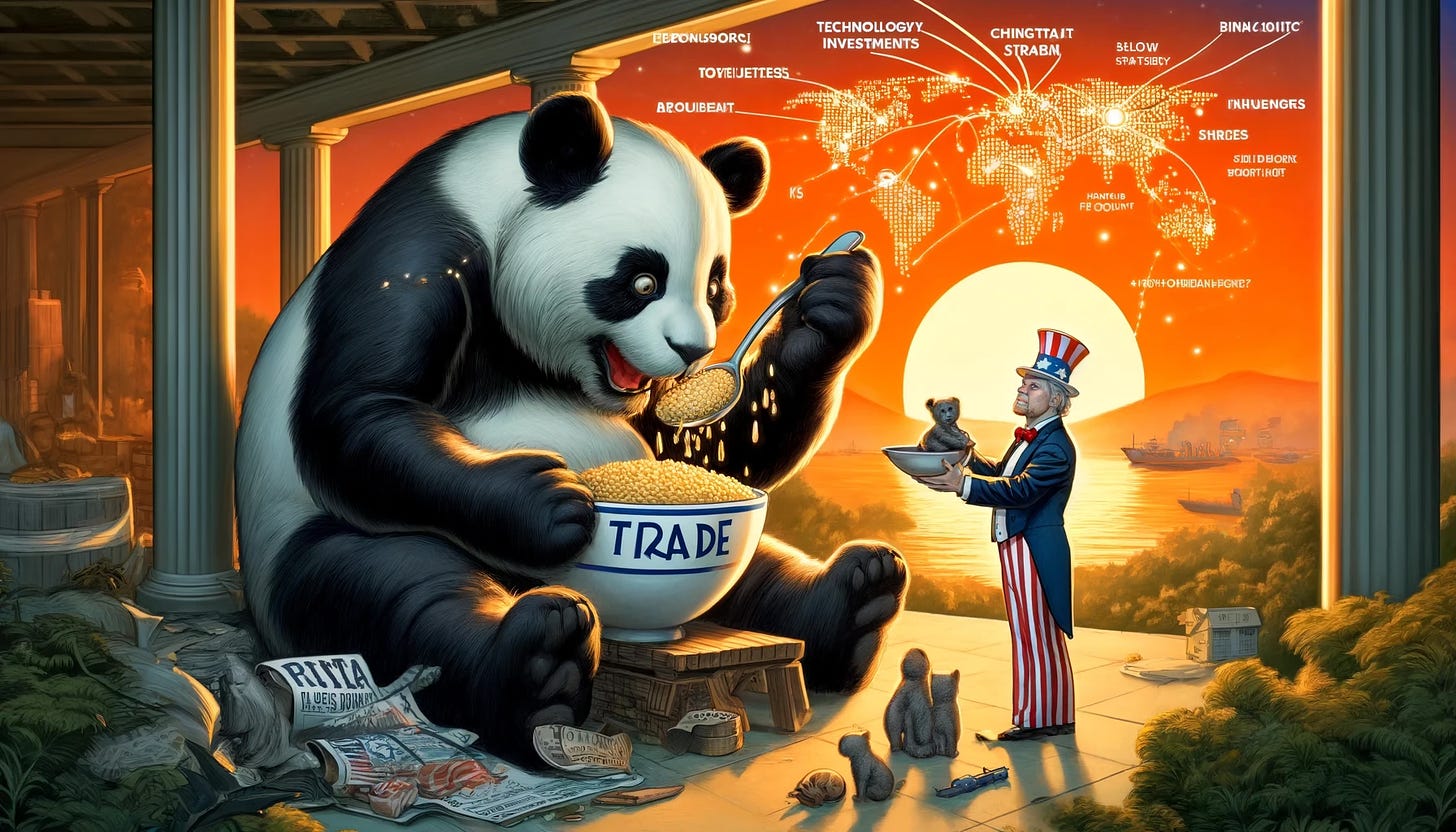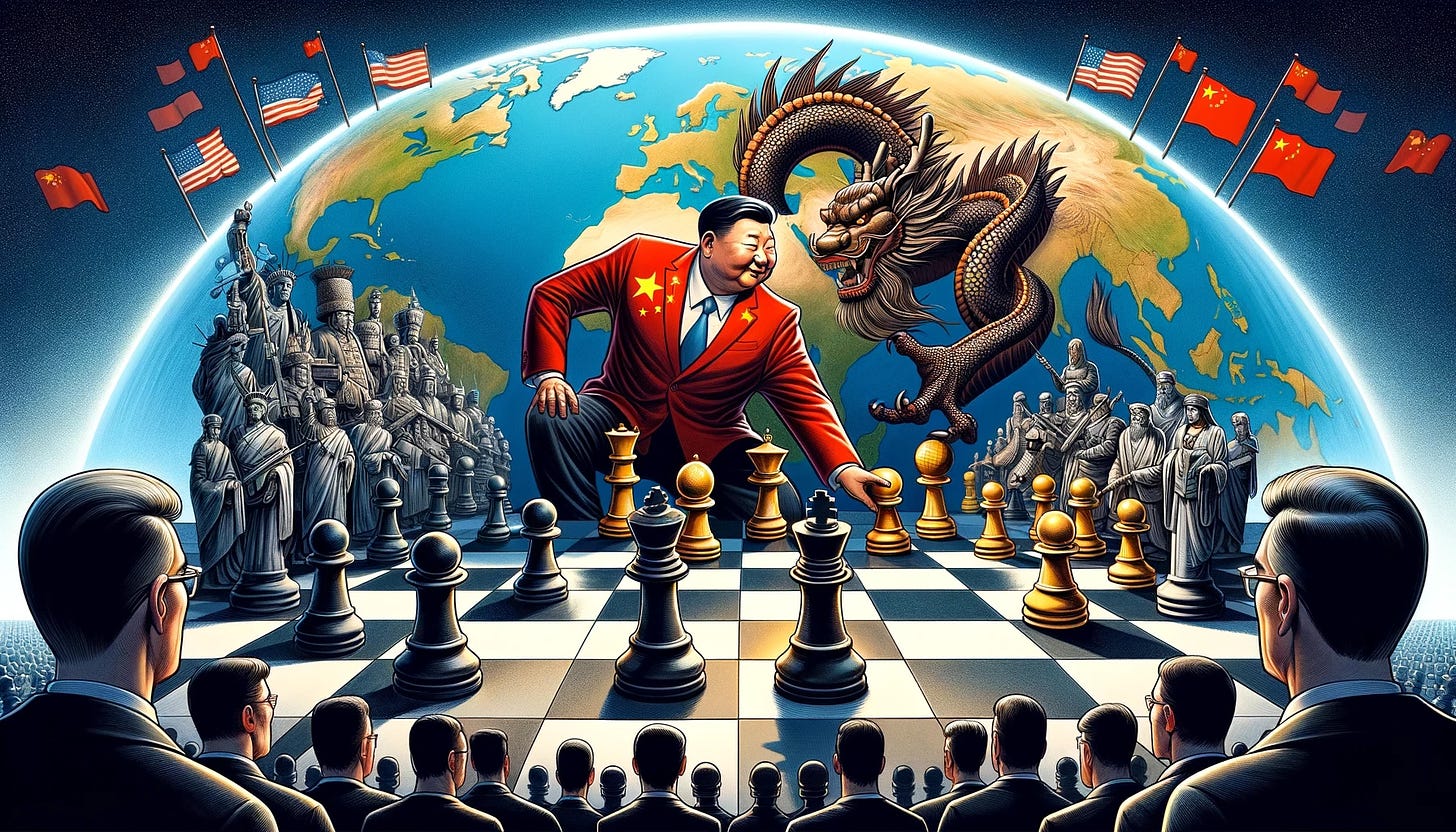Mar 28, 2024
After achieving victory in the Cold War against the Soviet Union, US political leadership, starting with the Clinton Administration, has made a continuing string of strategic blunders that have brought the United States to the point where - after building China up for decades - we face an enemy determined to become the new global hegemon and that now possesses equal economic, military and diplomatic resources.
To learn how this came about, in this episode Bill talks with James E. Fanell and Bradley A. Thayer, Ph.D, authors of
Embracing Communist China: America’s Greatest Strategic Failure.
Jim Fanell, a retired U.S. Navy captain and the former Director of Intelligence and Information Operations for the U.S. Pacific Fleet, is now a Government Fellow at the Geneva Centre for Security Policy.
Brad Thayer is an expert in Chinese grand strategies and the history of Chinese and Western strategic thought; and a former visiting fellow at Magdalen College, University of Oxford.
“How did China go from an underdeveloped country in 1990 with about 0.6 of 1% of world gross domestic product to over 20% of world GDP today?” asks Brad.
“The answer in large part is that the United States aided and abetted the rise of the Chinese Communist Party and kept it in power. That has never happened before in international politics where one state, the dominant state, has funded the rise of an enemy.”
U.S. foreign policy toward the People’s Republic of China (PRC) has been dominated by the so-called “Engagement School” since the end of the Cold War. They believed that U.S. political and economic engagement with the Chinese Communist Party (CCP) would transform the PRC into a “responsible stakeholder” in the Western economic system and, ideally a democracy. Of course, none of that happened.
Instead, the Engagement School saved the CCP and ensured that the PRC became wealthier and more powerful year-after-year and used that power to re-make the international order to suit the CCP’s interests and to threaten U.S. national security, allies, and partners.
“Engaging” with China has led to the offshoring of manufacturing jobs, the loss of intellectual property, and making the U.S. energy future dependent on China, just to name a few of our strategic blunders.
“We thought we could make China and CCP become more like us, that they would see the value of the being part of a US dominated system created in the post-World War II era. We assumed they would just naturally drift into becoming a liberal democracy. So we didn't fundamentally understand communism. We didn't understand the Chinese Communist Party's commitment to that ideology,” explains Jim.
The Trump administration began the difficult task of ending Engagement. However, under Biden, it has now returned in a supercharged form.
The Biden “reset” began in earnest in May when CIA Director Nicholas Burns made a secret trip to Beijing to meet with his Chinese counterparts. Then began a cavalcade of visits to the PRC from senior Biden officials: Secretary of State Anthony Blinken, National Security Advisor Jake Sullivan, Treasury Secretary Janet Yellen, Climate Czar John Kerry, and Commerce Secretary Gina Raimondo who was most explicit regarding why nothing could jeopardize the approximately $750 billion per year trade relationship with the PRC.
“But the apotheosis of the engagement paradigm was the summit meeting in November between Xi and Biden. The meeting with Biden was just Xi’s doormat to get to what really mattered: the meeting with the 400 business leaders,” explain Jim and Brad.
“Never in our history have Americans so openly and brazenly celebrated a communist and murderous dictator. It was an appalling and shameful moment in American history.”
“The U.S. has little to show in return for all these meetings, except for the loss of face and its own national power—again, year-after-year. It is stunning that so few Americans have asked what good has America received from the Engagement School. The elite have gotten wealthier, so they and the CCP are the winners. But it’s the Chinese and American people that bear the costs.”


